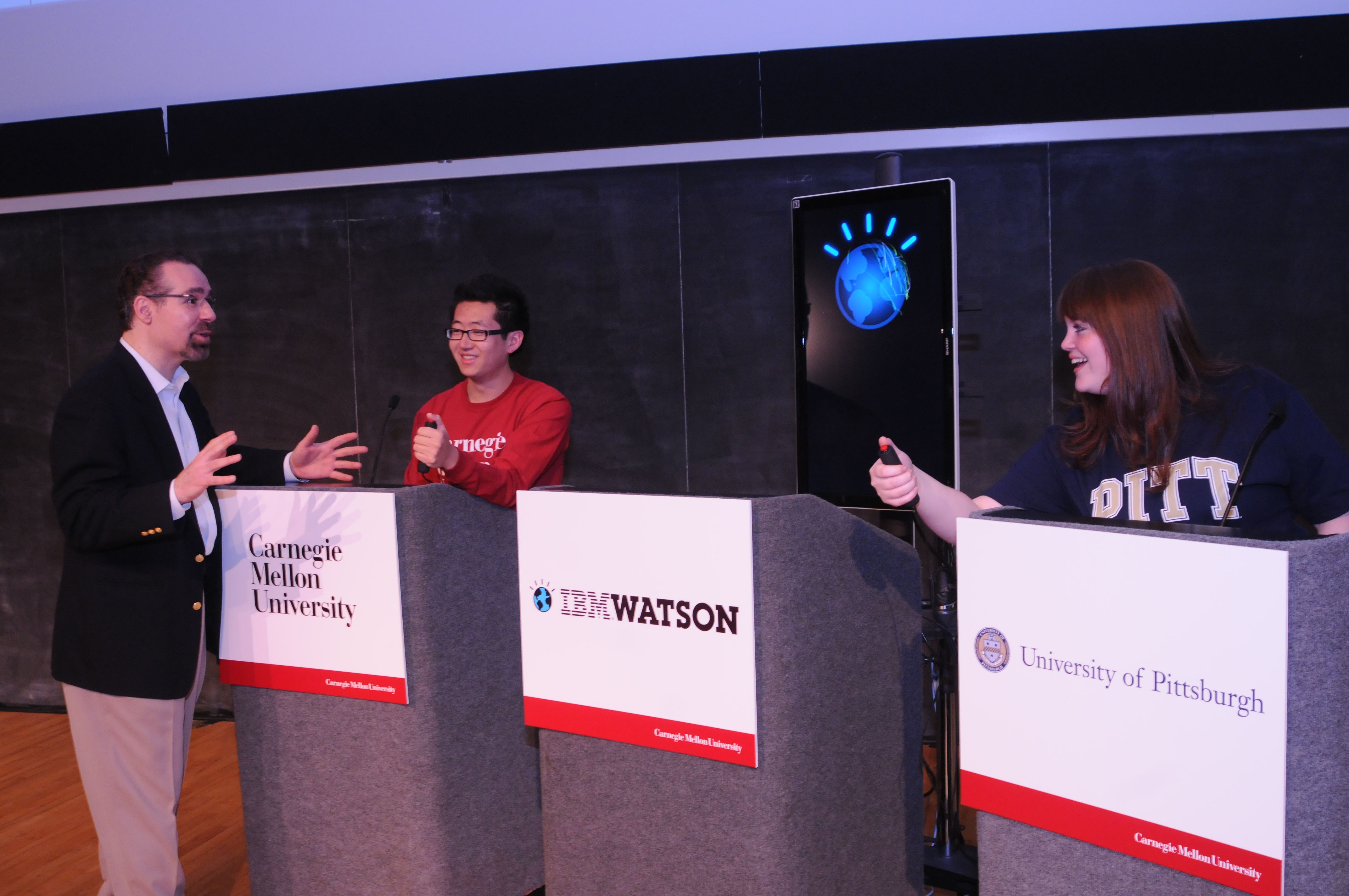Watson Demo Wows Standing-Room-Only Crowd
Byron SpiceThursday, March 31, 2011Print this page.

Jeopardy-Playing Machine Makes First Campus Visit
Students, staff and faculty members packed McConomy Auditorium on March 30 to see IBM's Watson computing system take on teams of Carnegie Mellon and University of Pittsburgh students. Part of the Watson University Symposium, the Watson demonstration was the first to take place on any university campus.
As it did when it bested two all-time Jeopardy! champions last month, Watson had its way with the student teams, amassing a winning total of $52,199, compared with $12,937 for the Pitt team and $7,463 for the Carnegie Mellon team.
"It was a fun experience competing against Watson, even though we did lose pretty badly," said Will Zhang, a member of the CMU team and a junior computer science major. "The best part was hearing and seeing the audience cheering when we even got a single question in against Watson's superhuman speed and resources. I am very grateful towards IBM and CMU for making this awesome event happen."
The CMU team also included Connor Fallon, a junior Creative Writing major and Erik Schmidt, a junior electrical and computer engineering major. The Pitt team included Danielle Arbogast, a junior majoring in political science; Richard Kester, a senior majoring in history and neuroscience, and Brian Sisco, a junior majoring in computer science. Eric Brown, a researcher on the IBM Watson project, hosted the demo.
The demo was part of a full day of Watson-related events, including two technical sessions in the morning- one at Pitt and one at CMU- a general address by David Ferrucci, IBM Watson project leader, that preceded the demo and a question-and-answer session featuring Ferrucci, Brown, Pitt computer scientist Diane Litman and SCS faculty members Eric Nyberg and Scott Fahlman
IBM chose to bring Watson to Carnegie Mellon because of the significant role that CMU faculty and students played in developing Watson and because of the long-standing collaboration between IBM and CMU on question-answering technologies and natural language processing. Nyberg, professor in the Language Technologies Institute, consulted with IBM from the beginning of the Watson project, and his PhD students, Nico Schlaefer and Hideki Shima, both contributed important algorithms and components during the development of Watson. IBM and Carnegie Mellon worked together to develop an open-source architecture that is available to all researchers in the field of question-answering.
"This is the first time we're bringing together Watson, IBM scientists, faculty, and students to prepare for the next evolution in computing," said Bernie Meyerson, vice president of innovation and university programs for IBM. "Watson will transform how technology is applied to assist doctors, business people and more. Our hope is that seeing Watson first hand will spark innovation from the leaders of tomorrow so that together we can continue to build a smarter planet."
See photos.
Byron Spice | 412-268-9068 | bspice@cs.cmu.edu
